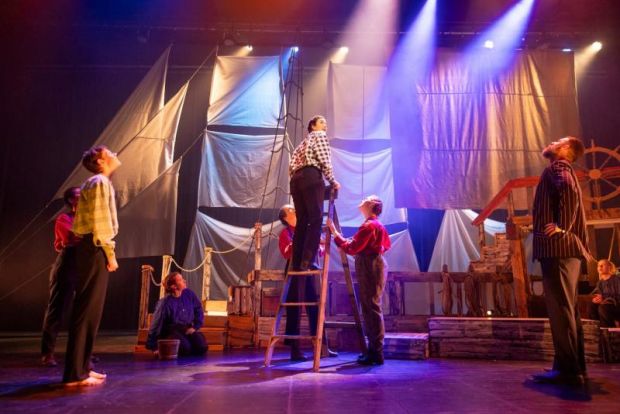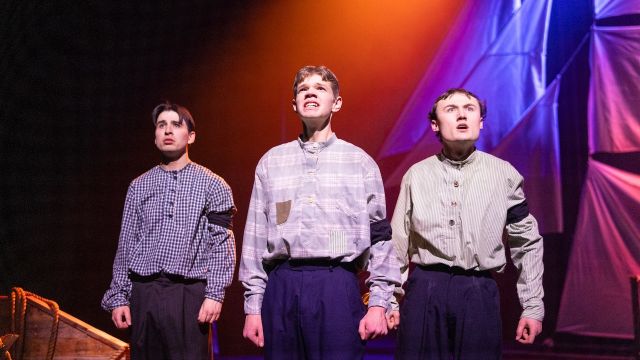Legacies
Based on a true event of extraordinary resilience against breathtaking cruelty, Rachel Pengilly’s play Legacies uses narration, poetry, music and physical theatre to weave this story of tragedy and survival. The 1868 story of the Arran Stowaways had been largely forgotten until relatively recently. Rachel Pengilly’s retelling stems from her learning that she was directly descended from one of the boys, David Brand.

The tale begins exploring the lives and dreams of these six young Scots lads in the coastal town of Greenock, Scotland. Eleven-year-old Hugh McGinnes (Tamara Brammall) listens beguiled as his father tells him ridiculous tales of sailing adventure, while Hugh McEwan (Phoebe Silberman) sweeps up his friend John Paul (Joshua James) in a fantasy of how beautiful it must be to live on the sea. One by one, these boys sneak into the Arran, a ship bound for Quebec. Almost immediately they are caught and put to work by the captain and first mate, and from there, conditions deteriorate until finally near Newfoundland they are forced out onto sea ice and left to die – but most survived.
Under Rachel Pengilly’s direction, the blocking is vibrant, showing the influence of having been workshopped in 2021 under Christopher Samuel Carroll. A prolonged period in the second act of the boys walking over the sea ice could have become dull to watch in less deft hands, but here was full of tension as you could see the boys become colder and more desperate. Jack Morton as David Brand was particularly excellent, treading delicately and clawing his bare toes against the pain of the ice. Cutting this section with testimony from the eventual court case built the drama and teased the ending, showing dramaturg Jordan Best’s influence. Slow motion undersea effects, fog and haunting music give this production a stark beauty.

The story departs from history in not depicting the abject horror the boys experienced on the boat. This is a relief, as the reality was horrific child abuse that would be awful to watch. By presenting it this way, the show is still tragic but can at least be watched by younger viewers. The approach de-emphasises the cruelty, while focusing on the boys’ remarkable, unlikely survival.
This is a mind-blowing story, recommended for children from age 12 upwards at parental discretion, and anyone who enjoys sublime storytelling.
Cathy Bannister
Subscribe to our E-Newsletter, buy our latest print edition or find a Performing Arts book at Book Nook.

